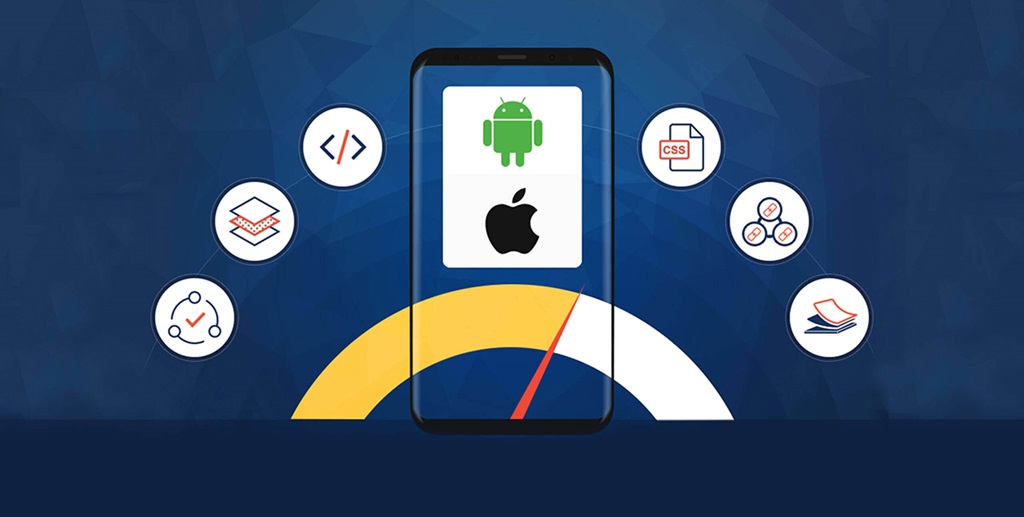In the ever-evolving landscape of mobile app development, choosing the right approach can be a pivotal decision for your business. The “hybrid” model has risen in prominence, offering a unique blend of advantages that might just be the perfect fit for your next project. Let’s delve into five key benefits of hybrid app development, specifically tailored for businesses like yours.
1. Cost-Effectiveness: Your Budget’s Best Friend
Developing separate native apps for iOS and Android can quickly become a financial burden. Hybrid apps, on the other hand, employ a single codebase that functions across multiple platforms. This significantly reduces development costs, making hybrid apps an attractive option for businesses of all sizes, especially those on a tighter budget.
- Reduced Development Time: One codebase translates to faster development cycles, accelerating your time to market. This agility can be a competitive advantage, allowing you to capitalize on emerging trends or quickly address market needs.
- Easier Maintenance: Updates and bug fixes apply universally to all platforms, simplifying maintenance and ensuring a consistent user experience across the board.
2. Cross-Platform Compatibility: Reach a Wider Audience
Reaching a wider audience is a core goal for most businesses, and hybrid apps make this achievable without doubling your development efforts. A single app can seamlessly run on iOS, Android, and often even web browsers, maximizing your reach and potential user base.
- Consistent User Experience: While minor platform-specific adaptations may be necessary, hybrid apps generally maintain a consistent look and feel across different devices. This fosters familiarity for users and strengthens your brand identity.
- Market Penetration: Launching on multiple platforms simultaneously can significantly boost your app’s visibility and market penetration, helping you establish a stronger presence in the mobile app landscape.
3. Faster Time-to-Market: Seize Opportunities Quickly

The business world moves fast, and being able to respond swiftly to market demands can be crucial. Hybrid development frameworks, like React Native or Flutter, streamline the development process, allowing you to bring your app to market faster than traditional native development.
- Competitive Edge: A faster time-to-market gives you a head start over competitors and allows you to capture early adopters, potentially gaining a loyal user base before others even launch.
- Iterative Development: The agility of hybrid development enables you to quickly iterate on your app, incorporating user feedback and staying ahead of the curve.
Related: 5 Crucial Insights Before Diving into Mobile App Development
4. Access to Device Features: Leverage Native Functionalities
One common misconception is that hybrid apps lack access to device-specific features. In reality, hybrid frameworks provide plugins and APIs that allow your app to utilize many of the native capabilities of devices, such as the camera, GPS, contacts, and more.
- Offline Functionality: Some hybrid apps can even work offline to a certain extent, enhancing user experience and accessibility in areas with limited connectivity.
- Enhanced User Experience: By leveraging device features, you can create a more engaging and personalized experience for your users, increasing app usage and retention.
5. Simplified Maintenance and Updates: Streamline Your Operations
Managing multiple codebases for different platforms can be a maintenance nightmare. Hybrid apps simplify this process significantly. Bug fixes, updates, and new features are implemented once and rolled out across all platforms, saving time and resources.
- Continuous Improvement: This streamlined maintenance process frees up your development team to focus on continuous improvement and adding new features, rather than getting bogged down in platform-specific tweaks.
- User Satisfaction: Regular updates and a responsive approach to bug fixes contribute to a positive user experience, fostering loyalty and positive reviews.
Who Should Consider Hybrid App Development?
Hybrid development is an excellent option for businesses that:
- Prioritize cost-effectiveness and speed to market.
- Want to reach a broad audience across multiple platforms?
- Need an app that can leverage device features for a richer user experience.
- Desire a simplified maintenance process for long-term efficiency.
Important Considerations:
While hybrid apps offer many benefits, they might not be ideal for every project. High-performance, graphics-intensive apps (like 3D games) may still be better suited for native development. Additionally, certain complex features or platform-specific integrations might require more effort with a hybrid approach.
Key Takeaway
Hybrid app development is a powerful tool in your business arsenal, offering cost savings, cross-platform reach, faster development, and simplified maintenance. By carefully weighing these benefits against your specific project needs. You can make an informed decision and create a mobile app that drives success for your business.






